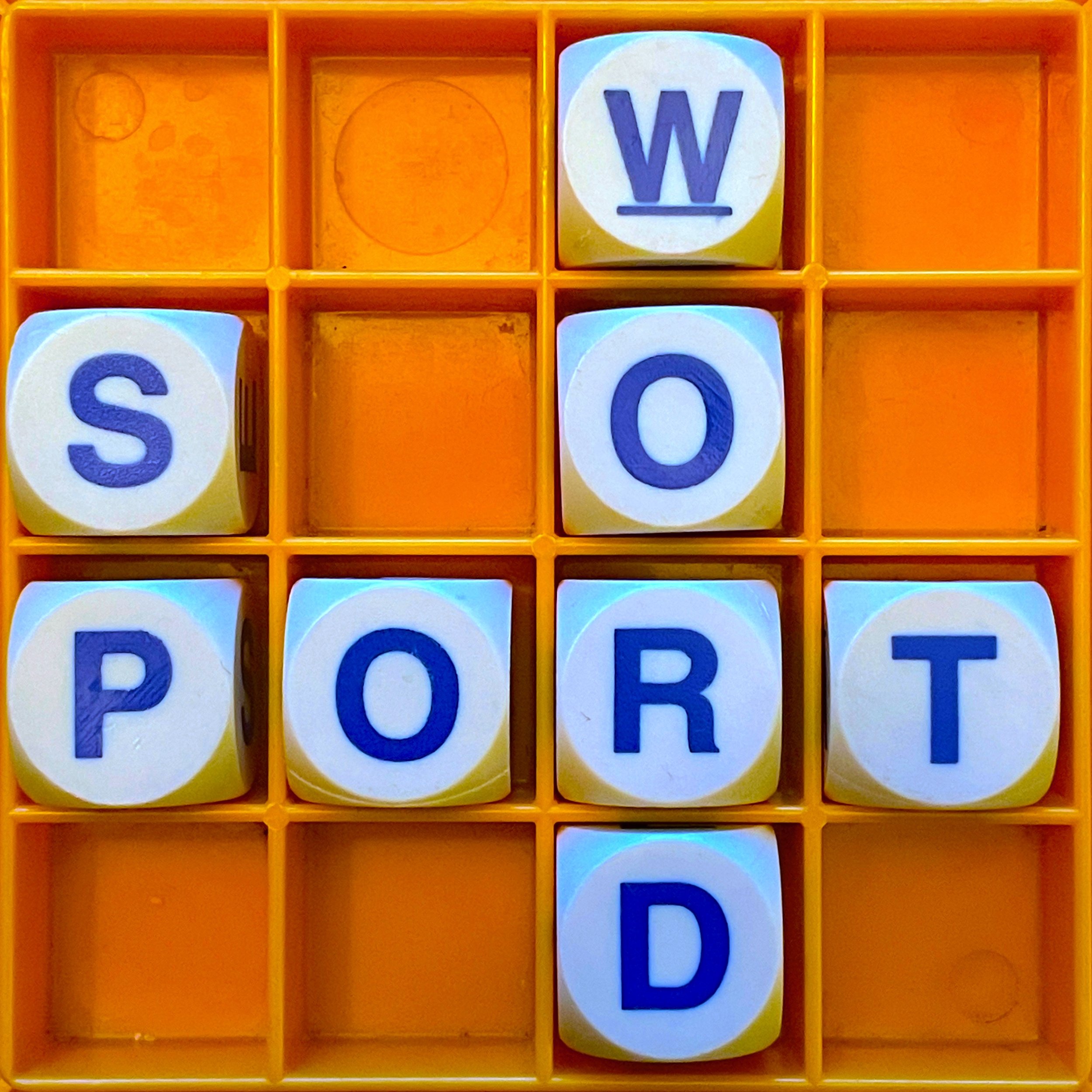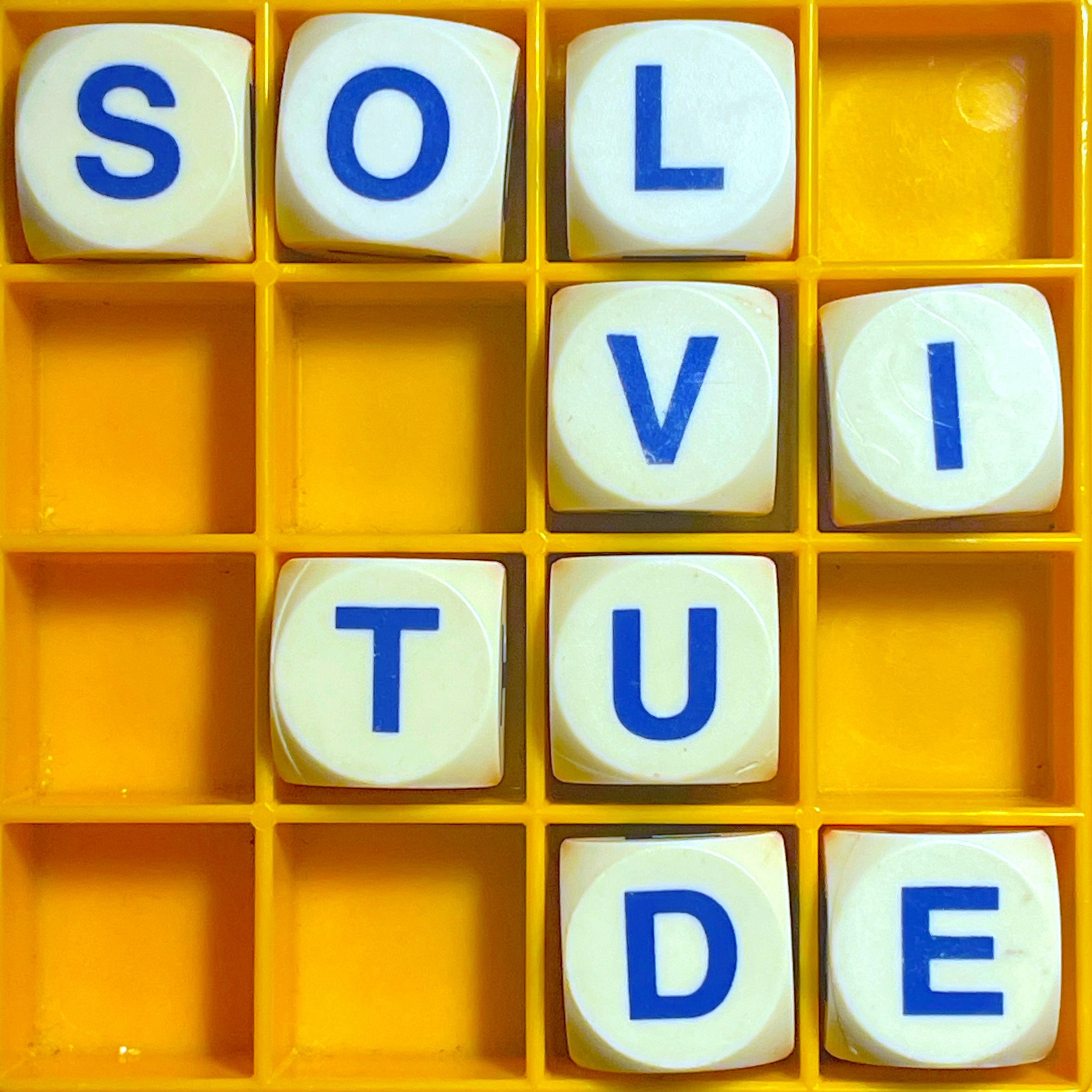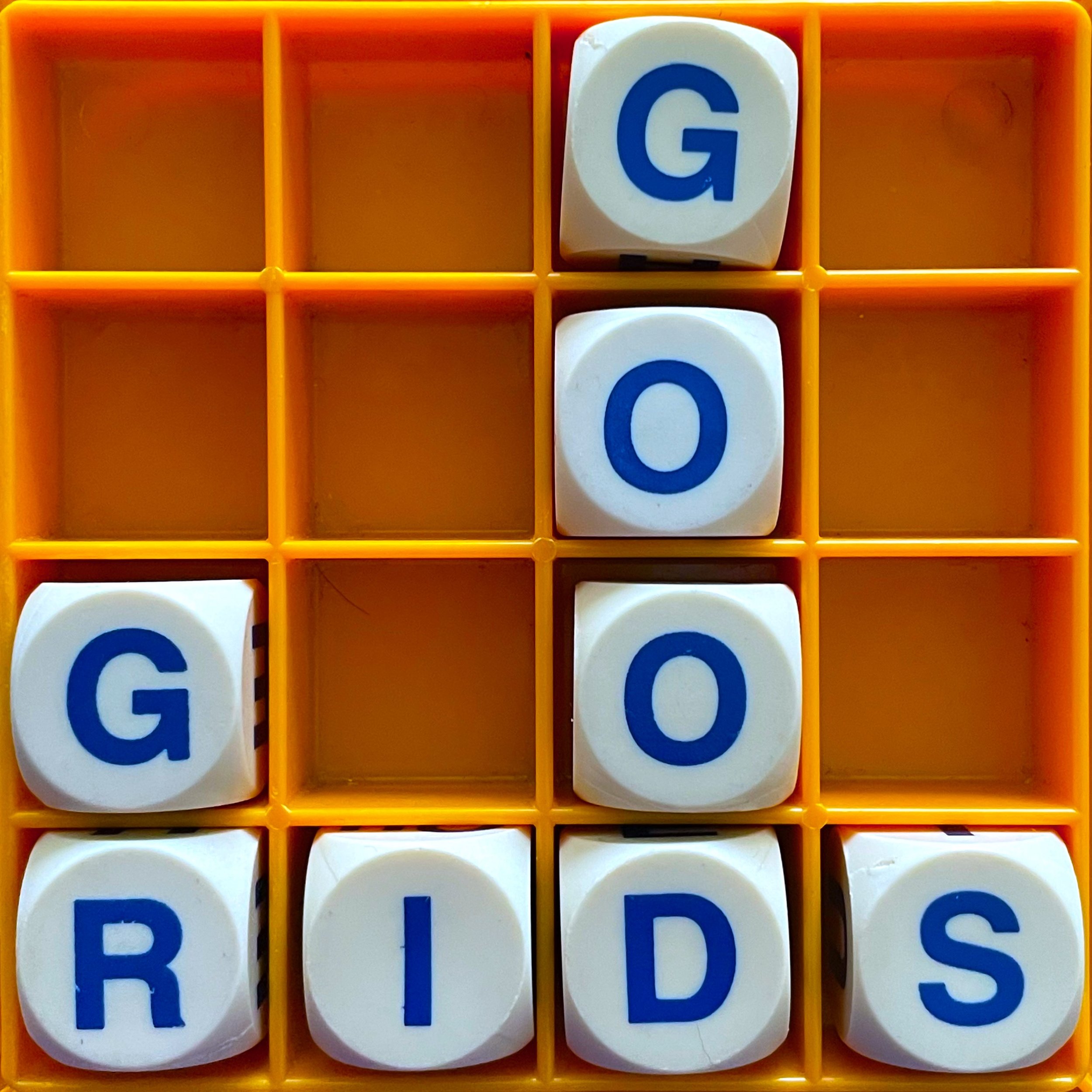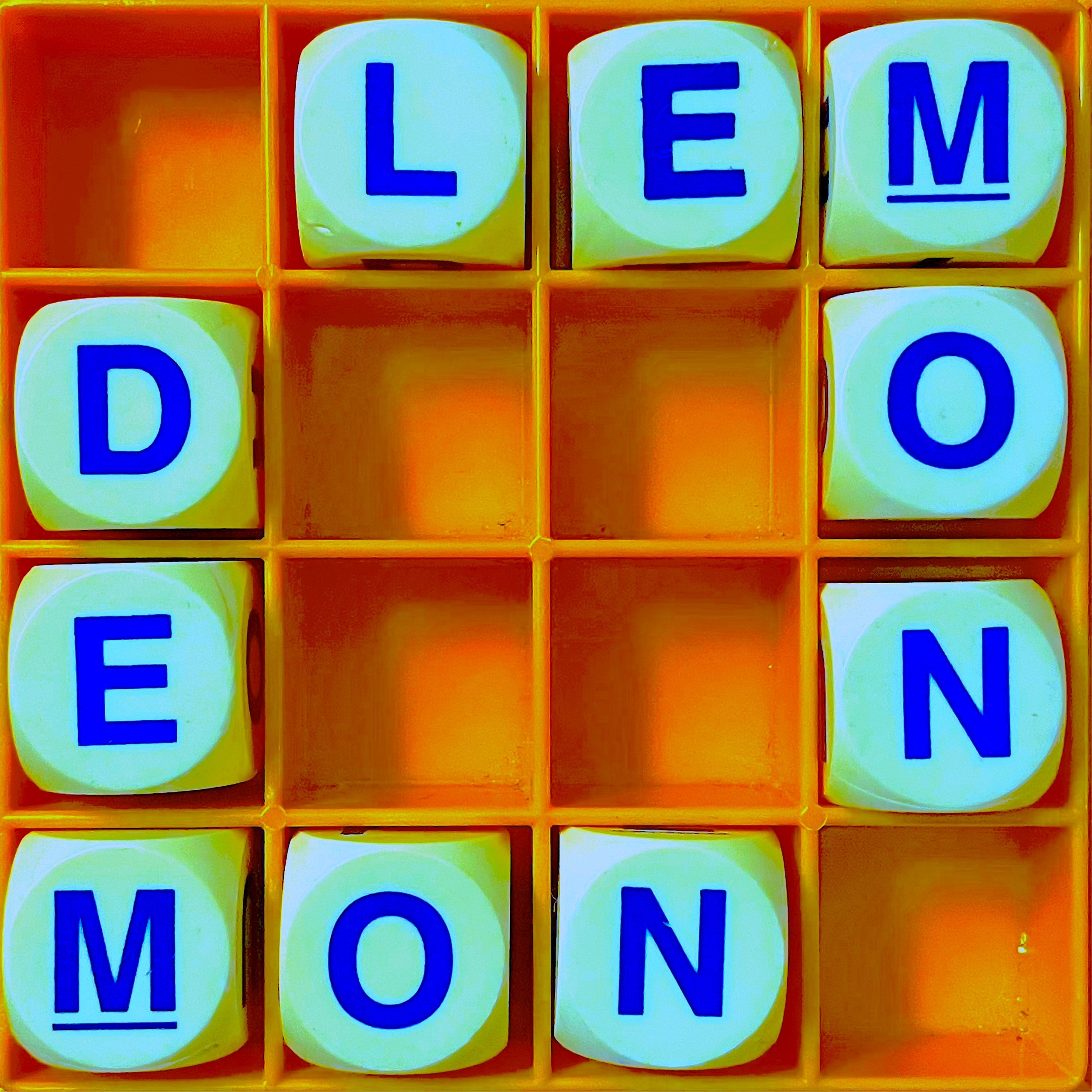Unleash the bees!
Read moreAllusionist 196. Word Play part 6: Beeing
DEV SHAH: Spelling is about roots, language. I genuinely loved getting a word I didn't know and having all this information - it was like a detective case: you have the language of origin, the definition, alternate pronunciations, roots; it's like witnesses and having details to a crime scene, forensics. And, you know, it was just me piecing out together, doing what I love, in front of millions of people, shining on a stage, cameras, and still getting a lot from it.
HZ: And you got to do all that detective work in ninety seconds.
DEV SHAH: Exactly.
Allusionist 195. Word play part 5: 100 Pages of Solvitude transcript
HZ: What would make you happier: if nobody solves it or if lots of people solve it?
JOHN FINNEMORE: Oh, lots of people, without question. I hope it's not trivial, but any puzzle has failed if nobody solves it.
Read moreAllusionist 194 Word Play part 4: Good Grids
ERIK AGARD: What I see a lot in crosswords is, I think, not unique to crosswords where historically they've been for a very specific cross-section of an audience. They're written with certain people in mind, and certain other people not in mind. And I think we're starting to see the tip of the iceberg of some changes that expands the range of who they're for.
Read moreAllusionist 193 Word Play part 3: Lemon Demon transcript
AJ JACOBS: Anagrams played a part in a trial, sort of a witch trial in the 1600s in the UK. And it was a woman who was put on trial for claiming that she was a prophet. Part of her proof was that if you rearrange the letters in her name - her name was Eleanor Davies - if you rearrange it, then it says, ‘Reveal, O Daniel’, as in the prophet Daniel. I don't believe that that was proof she was a prophet. They came down on her hard in the trial, so they said, “If you rearrange” - her married name was Dame Eleanor Davies - “and you rearrange those letters, it spells ‘Never So Mad A Lady;.” So like, “she's so crazy.” So that was how she was convicted. And by the way, that was when anagrams were easier, because there were so many spellings.
Read moreAllusionist 192 Word Play part 2 transcript
HZ: People assume to my face that a podcast about language won't be fun, and they're like, “Why would you do something that sounds so boring and dry and like a punishment?” What kind of reactions do you get when people learn that you make games about language?
KATHRYN HYMES: It's so interesting - for some people there's a similar reaction, but for a set of people, it's like you have given them the thing that they have most wanted in the world and maybe didn't realise or articulate or hope that such a thing could be made. And it's somewhat shocking that there's enough of those people and that the internet is able to connect it, you know, connect us to them that we end up finding each other.
Allusionist 62: In Crypt, Decrypt - transcript
HZ: Bruce, where are we?
BRUCE: We’re in the Upper East Side of New York, at a unitarian church, for Lollapuzzoola 10 - an annual crossword puzzle tournament. It’s terrifically fun. 250 people will cram into the basement and not see daylight for six or seven hours while we do crosswords.
Allusionist 16: Word Play - transcript
LESLIE SCOTT: Not many people realise the success of Scrabble is based on a statistician figuring out the scoring system - it's the first time someone had a word game where the score of the word game was based on him researching very thoroughly the number of times a particular letter was used. He scoured the New York Times for years counting how many times an E comes up, a Z, etc. Hence the numbers of those letters in the stack to start with was based on this, as is the scoring. And it works, whether or not you like the game. We have a mathematician to thank.
HZ: Probably why it’s not fun.
HZ: Sorry, Scrabble. But a game where you can triumph just by memorizing every two letter word will never have my affection.
Read moreAllusionist 8 Crosswords transcript
Hear this episode at theallusionist.org/crosswords.
This is The Allusionist, in which I, Helen Zaltzman, search for meaning in a bowl of alphaghetti. Let's warm-up for today's show with a little word history. Today, we are talking about "junk". Not the rather vulgar slang for genitals, but in the sense of "rubbish". This arose from the 14th century meaning of "junk", which was the nautical term for "rope", and it evolved to mean "the crap left behind by ships", and from that to mean "any old crap at all". On with the show.
HZ: "Tomb ends in one century, livid gloss puzzles. 7,10." That's your clue for what this episode is about. As I'm sure you deduced, cryptic crosswords, or, as I like to call them, "infuriating word puzzles that I can't do". On a good day, I can get maybe four clues. I think I'm thwarted pretty quickly by my ineptitude at divorcing a word from its meaning in that context, which, if you've been listening to The Allusionist since the beginning, you'll remember was one of the reasons I am averse to puns. So I'll blame my shoddy cryptic crossword ability on my suspicion that the clues are puns.
JOHN FEETENBY: A pun does not always work when you write it down, because people have different ways of pronouncing different words. Clues can be analogous to a pun, but I think clues are more like jokes, and that's kind of what I keep falling back on. If you can tell jokes, and if you can understand jokes when other people tell them, I think you're probably most of the way there to being able to do cryptic crosswords.
HZ: I am capable of identifying jokes. Perhaps there is hope for me with cryptic crosswords, then.
JOHN FEETENBY: My name is John Feetenby and I compile crosswords for a living. I do the two cryptic crosswords, I do the big general knowledge crossword, and I do assorted other bits and bobs, for the newspaper that I work for. When I announce that I make crosswords, the first thing is, "Oh, I can't do those, oh, that would be impossible." The second response I get is, "Ah, you're the devious so-and-so who ruins my Sunday morning every week." Sorry.
HZ: Cryptic crosswords have been ruining Sunday mornings since the 30th of July, 1925, the publication date of what is considered to be the first true cryptic crossword, in the Sunday Express newspaper in Britain. Straightforward crosswords had been around for considerably longer, but the first official crossword appeared in December 1913, when Arthur Wynne, a former onion farmer who was, by then, the editor of The New York World newspaper, decided to fill some space on a page with what was then called a "word cross". That's how crosswords started. But how does John Feetenby start a crossword?
JOHN FEETENBY: The way I do it is starting with the grid, and to keep things easy for their graphics department I work from a finite number of grids that I know I can fit words into fairly easily.
HZ: How many grids?
JOHN FEETENBY: With the cryptic ones, I've got 31 different ones.
HZ: Oof.
JOHN FEETENBY: So this is just to keep it varied. Whatever the day of the month is that the puzzle will be published on, I use the grid for that, pretty confident in the knowledge that I haven't used it recently.
HZ: For the average British cryptic crossword, the grid is 12 to 15 squares square, and has a rotationally symmetrical word layout.
Which more normally comes first, the word or the idea for the clue?
JOHN FEETENBY: I don't see how you could do it other than starting with the word. I think that's the bedrock, that's what the solver will be working towards, so that's what you're working from. So, you know, you start with your grid full of words and no clues at all. I'm not sure how you could work doing it the other way round, you know, having a brilliant idea for word, you then have to find a place for it in the grid, which is unlikely to happen over and over. Whereas if you go the other way round, you know, you're starting with your words. I'm absolutely, totally egalitarian as far as words are concerned. I think you can write an interesting clue for any word, and any word will lend itself to an interesting definition. And then you just furrow your brow until brilliant cryptic clues fall out of your fingers.
HZ: Yeah, those brilliant cryptic clues that, to the uninitiated, look like lines that David Lynch cut from a script for being too confusing. Show me the way, John.
JOHN FEETENBY: I don't think there is a rigid set of rules where you can say, well, this is fair and that's not fair and this is what you're doing, this is what you don't do, because as long as the person who is solving the crossword has got the word from the clue you have given them, then that's an alright clue. When you first look at it, it should look like a sentence that reads off the page. But you know, out of that sentence, there is going to be a word, and you know how many letters long it is, and that helps. And then you just have to start breaking the clue down and seeing what kind of thing it's trying to tell you, because if you can't get it, it's pointless. It has to be apprehendable at some level.
Squashing words into grids, it's sort of a little bit routine. As you do it, you're kind of looking at the words going in and thinking, "Well, there's something I might do with that, and that's something I might do with that." There are things I fall back on, and I think I'll have shortcuts that I use. The letter "S" can be "second", or "son", or something like that. "T" can be "time". My route one is anagrams. You know, if I get stuck on compiling a cryptic clue then I start poking around with the letters and see if they anagrammatise into something appealing.
And it's not particularly elegant, but there was a crossword I was compiling not long ago and I had the phrase "in loco parentis", and I said, "Wow, man, had you start clueing that?" And I had this train fixation going on, I wanted to do something about trains, because it's got "loco" in the middle, and it didn't work, it didn't work, and it was the last one, and I clued everything else, and I was just like, "It's going to have to be an anagram." But it turns out "in loco parentis" is an anagram of "oral inspection", and it just, to me, it doesn't look like it should be. Lovely, you know, "Oral inspection, ordered for one acting as mum or dad."
"Oral inspection", that's all the letters you need, "ordered" is the indication that you're going to have to jumble those up somehow, and then there's the definition tacked on the end, and that's a really kind of bread-and-butter clue. But you need stuff like that, there has to be a little toehold so that you can get started.
HZ: Here's the typical formula of a cryptic crossword clue. At the beginning or the end of the clue is the meaning of the answer you're looking for, while the rest of the clue indicates how you're supposed to get there. It might contain a code word to hint to the solver what is going on. For example, "endless" or "beheaded" to mean you have to remove a letter from the end of the word, or "confused", "wild", or "drunk" to show you're looking for an anagram. As well as taking liberties with our normal vocabulary, crossword clues have a vocabulary of their own.
JOHN FEETENBY: That's not set in stone. That's a thing that will change with time, you know, as language kind of moves on, and I persistently use the word "em", and the word "en", to mean "space". And people kind of understand that, but I don't know if they understand why they know it. I guess it's archaic in these days of not having hot metal presses. They're printers' measures for spaces. So an "en" was a single-character space, and an "em" was a double-character space. Now, I just use that quite blithely. Nobody ever rings up or emails to say, "What on earth do you mean by that?" But I don't know quite that that's a standard formation that's going to last that much longer.
HZ: If you don't speak fluent crossword and know every possible meaning of every word ever, there are manuals and dictionaries and websites that will help you decode what's going on in the clues. John, any other advice for the crossword novice?
JOHN FEETENBY: Any advice I have to give would not be much more complicated than keep going, keep trying. Have a look at the short words and see if anything leaps out. Getting the first clue in gives you an awful lot of ingress into the remaining clues. It gets easier as you carry on through it because you get more and more letters, but you never reach that point of triviality that you do with sudokus. They're really interesting when you start them, but as you go through the puzzle, it becomes progressively less and less challenging, to the point at which the last square can only be one thing, and you don't get that in crosswords.
You can be stuck on the last crossword clue for quite a long time. With the cryptic crosswords I do, one of them is two sets of clues for the same grid, so for the same answers there's a set of cryptic clues and a set of straightforward clues, and that's a great way of learning, because, if you cannot do the cryptic clue, have a look at the quick clue. Might give you an idea what the word is, and then sort of try and reverse-engineer the clue to see how it came out.
HZ: So you've got like a cheat right there, but it's legitimate.
JOHN FEETENBY: Right in front of you. I have one rather brilliant reader who got a little bit shirty about the fact that the straightforward clues were too visible. He said they would put him off because he tries to do it just using the cryptic clues, but he could sort of see the straightforward clues out the corner of his eye, so he has to mask them off with masking tape before he even starts.
HZ: That's a brilliantly low-tech solution to a problem. But technology is intruding on the crossword.
JOHN FEETENBY: Say 10 or 15 years ago, that general knowledge crossword, I would have to make that a lot more accessible than it is now. Whatever I write, people can google it, and they do. And there are crossword forums where people trade answers and comments and stuff. So at that point, how do you make a general knowledge crossword interesting? The only way to make interesting is by putting interesting things into it, so that's where I come from with that at the moment. The general knowledge crossword that I do every week has a prize attached to it, quite a big prize, so I do make the crossword quite challenging, but it is all ultimately googleable.
HZ: That's a hollow victory, though. Technology is changing crosswords in all sorts of ways with the setters.
JOHN FEETENBY: I've been dabbling in compiling crosswords and getting them published and stuff since the 1980s. When I started, my first job was for a trade journal called Computer Talk, which doesn't exist anymore. You'd think, well, OK, Computer Talk, that sounds like a very high-tech thing, but the way I was making a crossword for them was by drawing a grid on a piece of paper with a ruler and a pencil and then filling the words in manually, because there weren't, at that point, such things as easily-accessible databases of words or computer algorithms to squeeze them into grids. You kind of did it by trial and error, and one brilliant book, the Crossword Dictionary I think, and it had no definitions, but it had all the words from that dictionary listed by length of word, and then alphabetically by alternate letters. So you start, the first half of the book started with four-letter words that were "A"-something, "A"-something, and then "A"-something, "B"- something, until you got to the 26-letter words that were "Z"-something, "Z"-something, "Z"-something, which there aren't terribly many of. And then the second half of the book was exactly the same, but rearranged by the even-numbered letters rather than the odd-numbered ones. So you know, it used to be like a proper physical task, and now the process of actually filling a grid is pretty straightforward.
As a result of that, you now have, I suspect, companies who have large databases of grids, large databases of words, large databases of clues, and it is pretty much just pressing F1 on a keyboard and there's your crossword. I mean, know I'm just like some little guy with a loom sitting next to a clothes factory, sort of hand-stitching mine together and going, "Well, I hope mine have like a degree of idiosyncrasy, or they can be lighter on their feet maybe than the huge industrially-produced ones," but that doesn't alter the fact that it is quite easy just to buy things off the peg now.
HZ: Perhaps to prove that you can't replace him with a machine just yet, John then set himself a challenge.
JOHN FEETENBY: I very, very foolishly said something like, "Oh yeah, I know how you can write a clue for any word, it's a doddle."
HZ: The self-inflicted test to write a cryptic clue for my surname, "Zaltzman".
JOHN FEETENBY: I haven't entirely finessed it yet, but I could see where I was going with it, right? Spent ages with those "Z"s. "Jacuzzi", I was once in the position of having to write cryptically for "jacuzzi" and just about kind of scrapped the grid and started again. "Z" is a difficult one, and this is where bespoke crossword-compiling will will stand you in good stead, because you can move with the times. I am aware of a band called ZZ Top, and I am confident enough that ZZ Top are part of the cultural subconscious, that I could use them in a clue. So I reckon you could use the phrase "top band" to indicate "Z-Z", right?
HZ: Yes.
JOHN FEETENBY: So then you've just got an "A-L-T" in the middle of it, and "A-L-T" is brilliant because there's all sorts of things you can use as synonyms for that. It could be "a lieutenant", which is not very useful here, but it is short for "alternate" and "alternative". So, you've got your "Z-Z"s taken care of, you've got your "A-L-T" taken care of, and then "M-A-N" is just a doddle. I mean, it's not the most brilliant clue I've ever written, but I thought: "Top band, including alternative chap, a podcaster."
HZ: Incredible. This is like the proudest moment of my professional life.
JOHN FEETENBY: That's made my heart lift. That's brilliant. I very rarely sort of sit back from the screen and go, "Crikey, that was good," but I did once. It's: "100, minus one, equals 99."
HZ: Oh no.
JOHN FEETENBY: And it's four letters.
HZ: Cone?
JOHN FEETENBY: Brilliant!
HZ: You've encouraged me.
JOHN FEETENBY: Do you see where it comes from? The "C" is Roman numerals for a hundred.
HZ: I didn't even think of that. I'm a fool.
JOHN FEETENBY: And then "one" is just "O-N-E" written out, and then a "99" is a cone, an ice cream.
HZ: It was because it was four letters, that made it easier than if it was gonna be longer.
JOHN FEETENBY: Yeah, as I earnestly beseech people starting crosswords, to begin with use the small words, the little ones.
HZ: That is the quickest I've ever got a clue. It's a miracle.
Your randomly-selected word from the dictionary today is…
Waterbrash. Noun. A sudden flow of saliva associated with indigestion.
One of you asked if I could spell out the randomly-selected words of the day. Even better, there is a picture of the relevant dictionary entry on the post about each episode at theallusionist.org, as well as links to various interesting bits and bobs about the subject of the episode, and a bunch of other stuff. Take a look.
This episode was produced by me, Helen Zaltzman. The music is by Martin Austwick. John Feetenby's crosswords appear every Sunday in one of Britain's biggest newspapers. And, one final clue: "The den is in disarray, becoming terminal. 3,3." The end.









